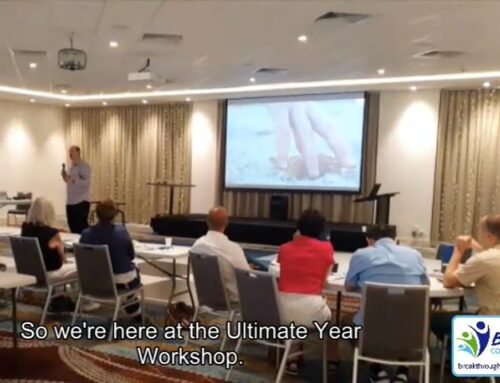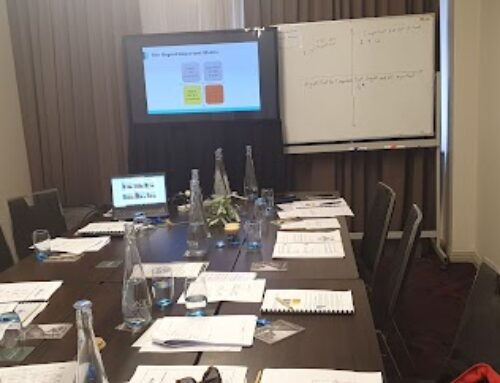 At Breakthrough Corporate Training, we often talk about how clarity is a catalyst—whether it’s a team aligning around a common vision or a leader recognising their next step. But clarity doesn’t just belong in strategy documents and whiteboards. It starts with something more personal: the way we end our day.
At Breakthrough Corporate Training, we often talk about how clarity is a catalyst—whether it’s a team aligning around a common vision or a leader recognising their next step. But clarity doesn’t just belong in strategy documents and whiteboards. It starts with something more personal: the way we end our day.
What if you finished each day not with more noise, but with perspective? What if you had a simple process for reviewing what worked, what didn’t, and what you could adjust?
That’s what the 4 Daily Questions for Personal Clarity are about.
Inspired by What Works
The idea isn’t new. In fact, the U.S. Army pioneered a form of this practice back in the 1970s with their After-Action Review (AAR). Since then, companies like Google, Amazon, and Bridgewater Associates have adapted it into their own debrief rituals—knowing that clarity fuels performance.
Researchers at Harvard, Wharton, and McKinsey have shown that structured reflection—asking the right questions at the right time—can improve team performance by as much as 25%. It builds learning, sharpens focus, and helps people adapt faster.
But it doesn’t just apply to high-performing teams. It works at the personal level too.
Why Personal Clarity Matters
There’s a lot of talk about self-care. And while it has its place, clarity offers something deeper. It reconnects you with your values, your purpose, and the decisions that truly matter.
Studies show that people who regularly reflect—especially in structured ways—are more resilient, less reactive, and more fulfilled. They’re not just managing their days. They’re leading themselves through them.
That’s why I developed the following four-question practice. It’s quick. It’s practical. And it works.
The 4 Daily Questions
1. What went well today?
This is where momentum begins. Celebrating wins (big or small) builds confidence and reinforces what’s working. It’s a daily check-in with progress.
2. What didn’t go as planned—and why?
Clarity starts with honesty. Naming what missed the mark—and owning why—helps avoid repeat patterns. It’s not about blame, but understanding.
3. What did I learn about myself today?
Each day holds a mirror. Maybe it revealed your strengths under pressure, or how you reacted when things got hard. Either way, self-awareness sharpens your edge.
4. What will I do differently tomorrow?
Reflection without adjustment is a missed opportunity. Use this final question to set a small, specific intention for the next day. It’s how growth becomes a habit.
Making It a Practice
Like most habits, this one works best when it’s simple:
-
When: Take 5–10 minutes at the end of each day
-
Where: Somewhere quiet and distraction-free
-
How: Write it down—on paper, in a journal, or in your phone
-
Then: Review weekly or monthly to track themes and growth
This isn’t just a self-help tool. It’s a structured clarity practice rooted in what works for teams and leaders around the world. And when it becomes part of your daily rhythm, it changes how you show up—at work, at home, and in life.
📞 Call us at +61 481 307 778
📧 Email us at of****@*******************************om.au
🔗 Learn more about our leadership and coaching workshops
#PersonalClarity #DailyReflection #LeadershipDevelopment #SelfAwareness #GrowthMindset #ResilientLeadership #CoachingTools #BreakthroughCorporateTraining #ScottEpp #ClarityIsCatalyst







